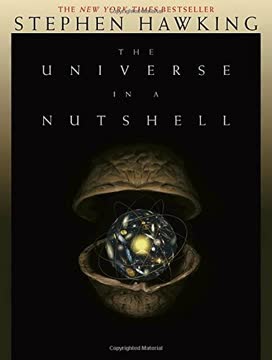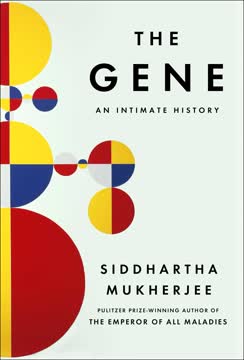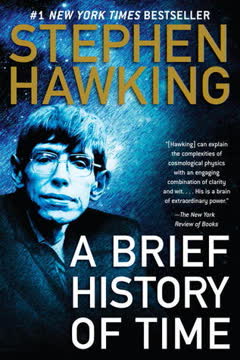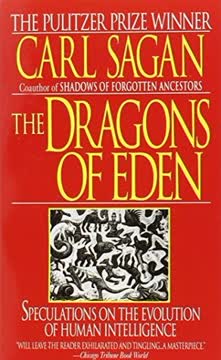Key Takeaways
1. Science as a Candle in the Dark: Illuminating Critical Thinking
Science is more than a body of knowledge; it is a way of thinking.
Scientific thinking is essential. In a world increasingly reliant on technology and scientific advancements, the ability to think critically and scientifically is crucial. Science provides us with tools to understand the world around us, make informed decisions, and distinguish fact from fiction. It encourages us to question, investigate, and seek evidence before accepting claims.
Science combats ignorance and superstition. By promoting rational thought and empirical evidence, science helps dispel myths, misconceptions, and unfounded beliefs that can lead to harmful decisions. It empowers individuals to think for themselves and resist manipulation by those who would exploit ignorance for personal gain or power. Through science education and popularization, we can create a more informed and discerning society capable of addressing complex global challenges.
2. The Power of Skepticism: Combating Pseudoscience and Superstition
The method of science, as stodgy and grumpy as it may seem, is far more important than the findings of science.
Skepticism is a crucial scientific tool. It involves questioning claims, demanding evidence, and being willing to change one's mind in light of new information. Skepticism helps protect us from fraud, deception, and self-delusion. It is not about cynicism or close-mindedness, but rather about maintaining an open mind while requiring sufficient evidence before accepting extraordinary claims.
Pseudoscience thrives on lack of skepticism. Many popular beliefs, from astrology to alien abductions, persist because people fail to apply critical thinking and skeptical inquiry. By learning to recognize common logical fallacies, understand the scientific method, and demand rigorous evidence, we can better distinguish between genuine scientific discoveries and pseudoscientific claims. This skill is increasingly important in an age of information overload and widespread misinformation.
3. The Demon-Haunted World: Understanding the Appeal of Irrational Beliefs
We can judge our progress by the courage of our questions and the depth of our answers, our willingness to embrace what is true rather than what feels good.
Human psychology predisposes us to irrational beliefs. Our brains are pattern-seeking machines, evolved to find meaning and causality even where none exists. This tendency, combined with our natural fears, desires, and biases, makes us susceptible to superstition, conspiracy theories, and pseudoscientific explanations. Understanding these psychological factors can help us recognize and overcome our own irrational beliefs.
Cultural and social factors reinforce irrational beliefs. Many irrational beliefs persist because they serve social, emotional, or cultural functions. They may provide comfort, a sense of control, or group identity. Recognizing these functions can help us address the underlying needs that irrational beliefs fulfill, while still promoting more accurate and scientific worldviews. Education, critical thinking skills, and exposure to scientific explanations can help counter the appeal of irrational beliefs.
4. Alien Abductions: A Case Study in Mass Delusion and Scientific Investigation
Keeping an open mind is a virtue, but not so open that your brains fall out.
The alien abduction phenomenon illustrates the power of suggestion and the fallibility of memory. Many people sincerely believe they have been abducted by aliens, despite the lack of credible evidence. This belief often arises from a combination of factors:
- Sleep paralysis and hypnagogic hallucinations
- False memories induced through hypnosis or leading questions
- Cultural influences and media portrayals of aliens
- Misinterpretation of unusual but natural phenomena
Scientific investigation reveals alternative explanations. By applying rigorous research methods, scientists have uncovered more plausible explanations for abduction experiences. These include:
- Psychological factors such as fantasy-prone personalities and dissociative states
- Neurological conditions that can cause vivid hallucinations
- Social and cultural influences that shape the content of these experiences
- The power of suggestion and the malleability of human memory
Understanding these factors helps explain the persistence of the alien abduction belief without resorting to extraordinary claims about extraterrestrial visitations.
5. The Fine Art of Baloney Detection: Tools for Skeptical Thinking
If you're only skeptical, then no new ideas make it through to you. You never learn anything new. You become a crotchety old person convinced that nonsense is ruling the world. But every now and then, a new idea turns out to be on the mark, valid and wonderful.
Critical thinking tools are essential for navigating the modern world. Sagan outlines several key principles for detecting fallacious or fraudulent claims:
- Seek independent confirmation of facts
- Encourage substantive debate on the evidence
- Consider alternative explanations
- Don't get overly attached to your own ideas
- Quantify claims when possible
- Use Occam's Razor: prefer simpler explanations
- Ask if the claim is falsifiable
Recognize common logical fallacies. Being able to identify fallacious reasoning helps in evaluating claims:
- Ad hominem attacks
- Appeal to authority
- Argument from adverse consequences
- Appeal to ignorance
- Special pleading
- Begging the question
- Observational selection
- Statistics of small numbers
- Misunderstanding of the nature of statistics
- Inconsistency
- Non sequitur
- Post hoc, ergo propter hoc
- Meaningless question
- Excluded middle or false dichotomy
- Short-term vs. long-term thinking
- Slippery slope
- Confusion of correlation and causation
6. The Marriage of Skepticism and Wonder: Embracing Scientific Curiosity
Science is not only compatible with spirituality; it is a profound source of spirituality.
Balancing skepticism and wonder is key to scientific thinking. While skepticism is crucial for avoiding errors and false beliefs, an open-minded sense of wonder drives scientific curiosity and discovery. The most effective scientific thinkers cultivate both qualities:
- Skepticism: questioning claims, demanding evidence, considering alternative explanations
- Wonder: marveling at the complexity of nature, asking big questions, imagining new possibilities
Science can be a source of awe and inspiration. Far from being dry or disconnected from human experience, science reveals the breathtaking beauty and complexity of the universe. It can provide a sense of cosmic connection and purpose, answering (and raising) profound questions about our place in the cosmos. By embracing both skepticism and wonder, we can enjoy the intellectual and emotional rewards of scientific inquiry.
7. Science Education: Cultivating a Scientifically Literate Society
Every kid starts out as a natural-born scientist, and then we beat it out of them. A few trickle through the system with their wonder and enthusiasm for science intact.
Effective science education is crucial for society's future. A scientifically literate populace is better equipped to:
- Make informed decisions about personal and public issues
- Participate effectively in democratic processes
- Understand and adapt to rapid technological changes
- Appreciate the beauty and complexity of the natural world
- Think critically and solve problems creatively
Improving science education requires systemic changes. Some key areas for improvement include:
- Emphasizing hands-on experimentation and inquiry-based learning
- Teaching the process of science, not just its findings
- Connecting scientific concepts to real-world applications
- Addressing misconceptions and pseudoscientific beliefs
- Encouraging curiosity and question-asking
- Providing better training and support for science teachers
- Increasing funding for science education and research
8. The Responsibility of Scientists: Communicating Complex Ideas to the Public
We live in a society exquisitely dependent on science and technology, in which hardly anyone knows anything about science and technology.
Scientists have a duty to communicate their work to the public. In a world increasingly shaped by scientific and technological advancements, it's crucial for scientists to:
- Explain their research in clear, accessible language
- Engage with the media and policy makers
- Address public concerns and misconceptions
- Highlight the relevance and impact of their work
- Inspire the next generation of scientists
Effective science communication requires special skills. Scientists must learn to:
- Use analogies and metaphors to explain complex concepts
- Tell compelling stories that illustrate scientific principles
- Address the human implications of their research
- Acknowledge uncertainties and limitations of current knowledge
- Engage in dialogue, not just one-way transmission of information
9. The Impact of Pseudoscience: Social and Personal Consequences
One of the saddest lessons of history is this: If we've been bamboozled long enough, we tend to reject any evidence of the bamboozle. We're no longer interested in finding out the truth. The bamboozle has captured us. It's simply too painful to acknowledge, even to ourselves, that we've been taken.
Pseudoscience can have serious negative consequences. Beyond simply being wrong, pseudoscientific beliefs can lead to:
- Wasted resources on ineffective treatments or technologies
- Delayed or foregone effective medical treatments
- Misguided public policies based on false premises
- Exploitation of vulnerable individuals by charlatans
- Erosion of critical thinking skills in society
- Distrust in genuine scientific expertise
Combating pseudoscience requires a multifaceted approach. Strategies include:
- Improving science education at all levels
- Promoting media literacy and critical thinking skills
- Encouraging scientists to engage in public outreach
- Debunking pseudoscientific claims with clear, evidence-based explanations
- Addressing the emotional and social needs that pseudoscience often fulfills
10. The Ethics of Science: Confronting the Misuse of Scientific Knowledge
We've arranged a global civilization in which most crucial elements profoundly depend on science and technology. We have also arranged things so that almost no one understands science and technology. This is a prescription for disaster.
Scientific knowledge brings ethical responsibilities. As science and technology become increasingly powerful, scientists must grapple with the potential consequences of their work:
- Dual-use research that could be applied for harmful purposes
- Environmental impacts of new technologies
- Privacy and security concerns in the digital age
- Ethical implications of genetic engineering and artificial intelligence
- Balancing scientific progress with potential risks
Society must engage in ethical discussions about scientific advances. This requires:
- Interdisciplinary collaboration between scientists, ethicists, and policy makers
- Public dialogue about the risks and benefits of new technologies
- Developing ethical guidelines and regulatory frameworks
- Fostering a culture of responsibility within scientific communities
- Educating the public about the ethical dimensions of scientific research
By addressing these ethical challenges proactively, we can harness the power of science for the benefit of humanity while minimizing potential harms.
Last updated:
FAQ
What's The Demon-Haunted World about?
- Science vs. Pseudoscience: The book explores the conflict between scientific reasoning and pseudoscientific beliefs, emphasizing the importance of skepticism and critical thinking.
- Cultural Critique: Sagan critiques society's fascination with pseudoscience, such as UFOs and alien abductions, and how these overshadow genuine scientific inquiry.
- Personal Journey: Sagan shares personal anecdotes and reflections on his experiences with science, illustrating the wonder and beauty of scientific discovery.
Why should I read The Demon-Haunted World?
- Promotes Critical Thinking: The book encourages a skeptical mindset, urging readers to question extraordinary claims without evidence.
- Relevance to Modern Issues: Sagan addresses contemporary issues like environmental degradation and misinformation, making his insights relevant today.
- Inspiring and Accessible: Sagan's engaging writing makes complex scientific concepts understandable, inspiring readers to appreciate the universe's wonders.
What are the key takeaways of The Demon-Haunted World?
- Value of Science: Sagan argues that science is essential for understanding the world and improving the human condition.
- Skepticism is Crucial: The book emphasizes the importance of skepticism in evaluating claims, especially those related to the supernatural.
- Cultural Impact of Pseudoscience: Sagan discusses how pseudoscience can lead to widespread misinformation, highlighting the need for better science communication.
What are the best quotes from The Demon-Haunted World and what do they mean?
- "It is better to light one candle than to curse the darkness.": Emphasizes proactive engagement with science to promote understanding and knowledge.
- "Extraordinary claims require extraordinary evidence.": Highlights the need for substantial evidence to support unusual claims, guiding critical thinking.
- "We are, as I like to say, starstuff.": Reflects Sagan's belief in the interconnectedness of all life and the universe, reminding us of our shared origins.
How does Carl Sagan define science in The Demon-Haunted World?
- Science as a Method: Sagan defines science as a way of thinking involving observation, experimentation, and critical analysis.
- Error-Correcting Mechanism: He highlights science's built-in mechanisms for self-correction, essential for advancing understanding.
- Openness to New Ideas: Sagan stresses that science thrives on openness and rigorous scrutiny, fostering inquiry and discovery.
What is the significance of the "baloney detection kit" in The Demon-Haunted World?
- Critical Thinking Tools: The "baloney detection kit" is a set of tools for evaluating claims and arguments, helping discern valid information.
- Encourages Skepticism: It promotes a skeptical mindset, urging individuals to question the validity of information and seek independent confirmation.
- Framework for Analysis: Provides a structured approach to analyzing arguments, aiding in navigating complex issues and avoiding misinformation.
How does Sagan address the issue of scientific literacy in The Demon-Haunted World?
- Alarmingly Low Literacy Rates: Sagan points out the significant portion of the population that is scientifically illiterate, posing societal risks.
- Consequences of Ignorance: He warns that scientific illiteracy can lead to poor decision-making on critical issues like health and environment.
- Call to Action: Sagan advocates for improved science education and communication to empower informed choices and policy-making.
How does Sagan compare alien abductions to historical religious experiences in The Demon-Haunted World?
- Similarities in Experience: Sagan draws parallels between alien abduction accounts and historical religious experiences, suggesting psychological phenomena.
- Cultural Context: He argues that cultural context shapes interpretations, whether as divine encounters or alien abductions.
- Need for Evidence: Sagan emphasizes that both claims require scrutiny and evidence, advocating for a rational approach.
How does Sagan address the relationship between science and democracy in The Demon-Haunted World?
- Science as a Foundation: Sagan argues that a functioning democracy relies on an informed citizenry capable of critical thought.
- Skepticism and Accountability: Emphasizes skepticism as necessary for holding leaders accountable and preventing power abuse.
- Interdependence of Values: Illustrates that the values of science—such as inquiry and evidence—are also democratic cornerstones.
What role do personal anecdotes play in The Demon-Haunted World?
- Illustrating Concepts: Sagan uses personal anecdotes to make scientific ideas relatable and illustrate key concepts.
- Engaging the Reader: These anecdotes engage readers emotionally, connecting them with Sagan's experiences and insights.
- Reflecting on Society: Sagan's experiences reflect societal attitudes towards science and pseudoscience, critiquing educational and cultural beliefs.
How does The Demon-Haunted World critique religion and superstition?
- Historical Context: Sagan examines historical instances where religious beliefs led to persecution and violence, like witch hunts.
- Science vs. Dogma: Contrasts scientific inquiry's open-mindedness with dogmatic beliefs' rigidity, advocating for questioning and revising ideas.
- Call for Rationality: Urges reliance on evidence rather than faith, suggesting that embracing science leads to a more just society.
What is Sagan's vision for the future in The Demon-Haunted World?
- Hope for Enlightenment: Sagan expresses hope for greater scientific understanding and rationality in society.
- Collective Responsibility: Emphasizes individuals' responsibility to advocate for science and reason in their communities.
- Sustainable Progress: Envisions a future with widespread scientific literacy, leading to informed decision-making and sustainable progress.
Review Summary
The Demon-Haunted World: Science as a Candle in the Dark is widely praised as an important defense of scientific thinking and skepticism against pseudoscience and superstition. Sagan examines topics like UFOs, alien abductions, and religion, advocating for critical thinking and evidence-based reasoning. Many reviewers found the book still relevant decades later, appreciating Sagan's clear writing and passionate arguments for science education. Some felt certain sections were dated or repetitive, but overall the book is highly recommended for its insights on the importance of scientific literacy in society.
Similar Books










Download PDF
Download EPUB
.epub digital book format is ideal for reading ebooks on phones, tablets, and e-readers.







